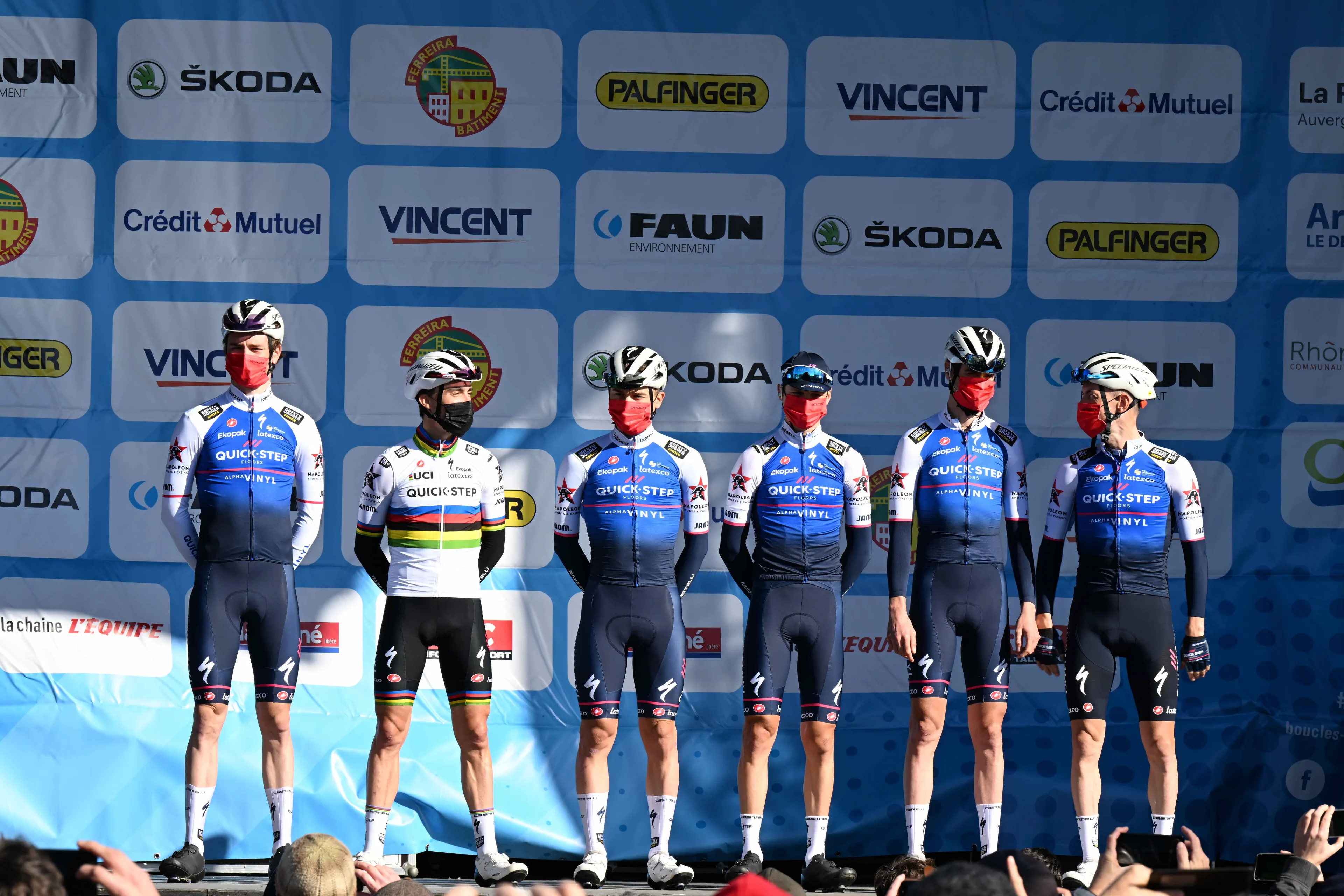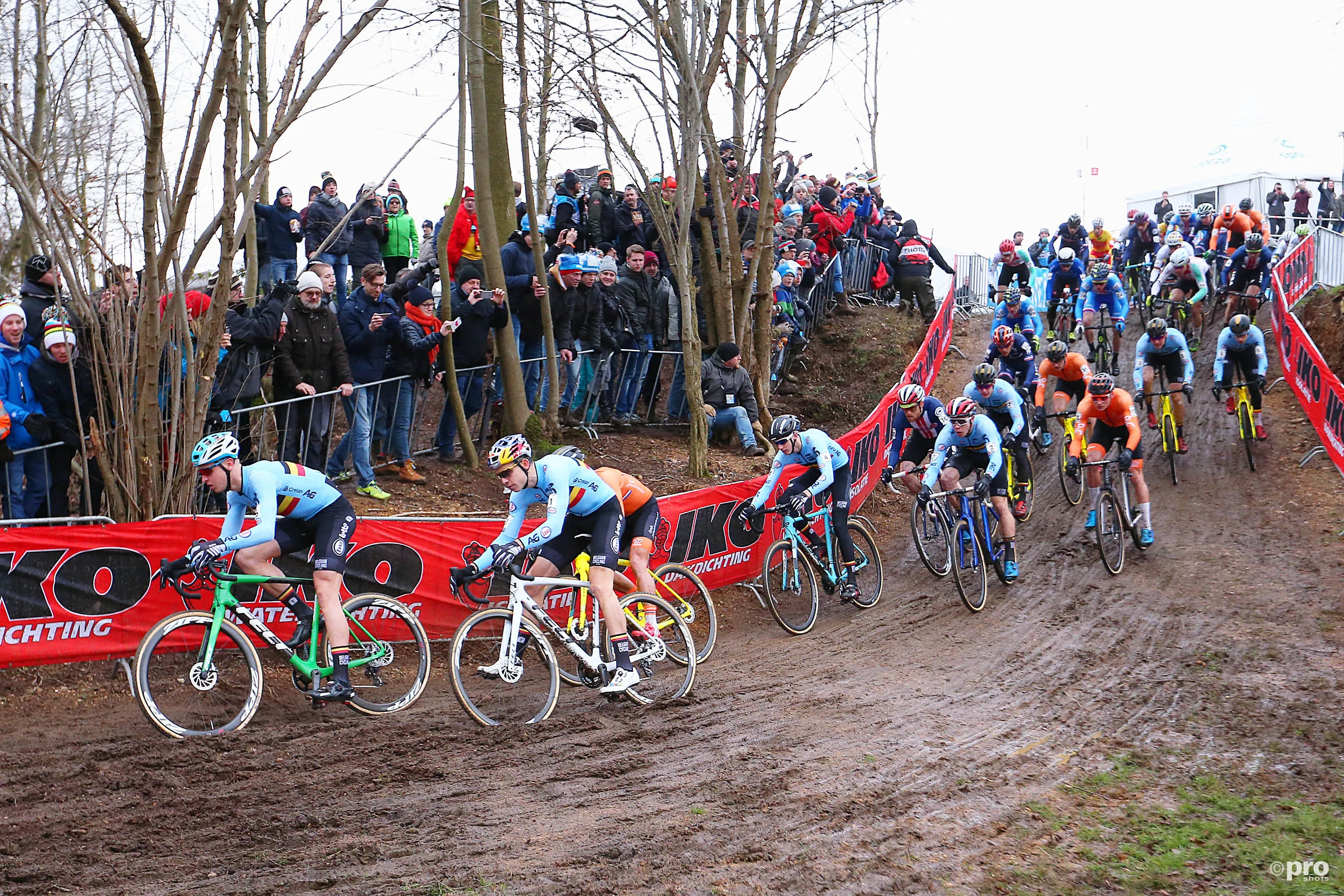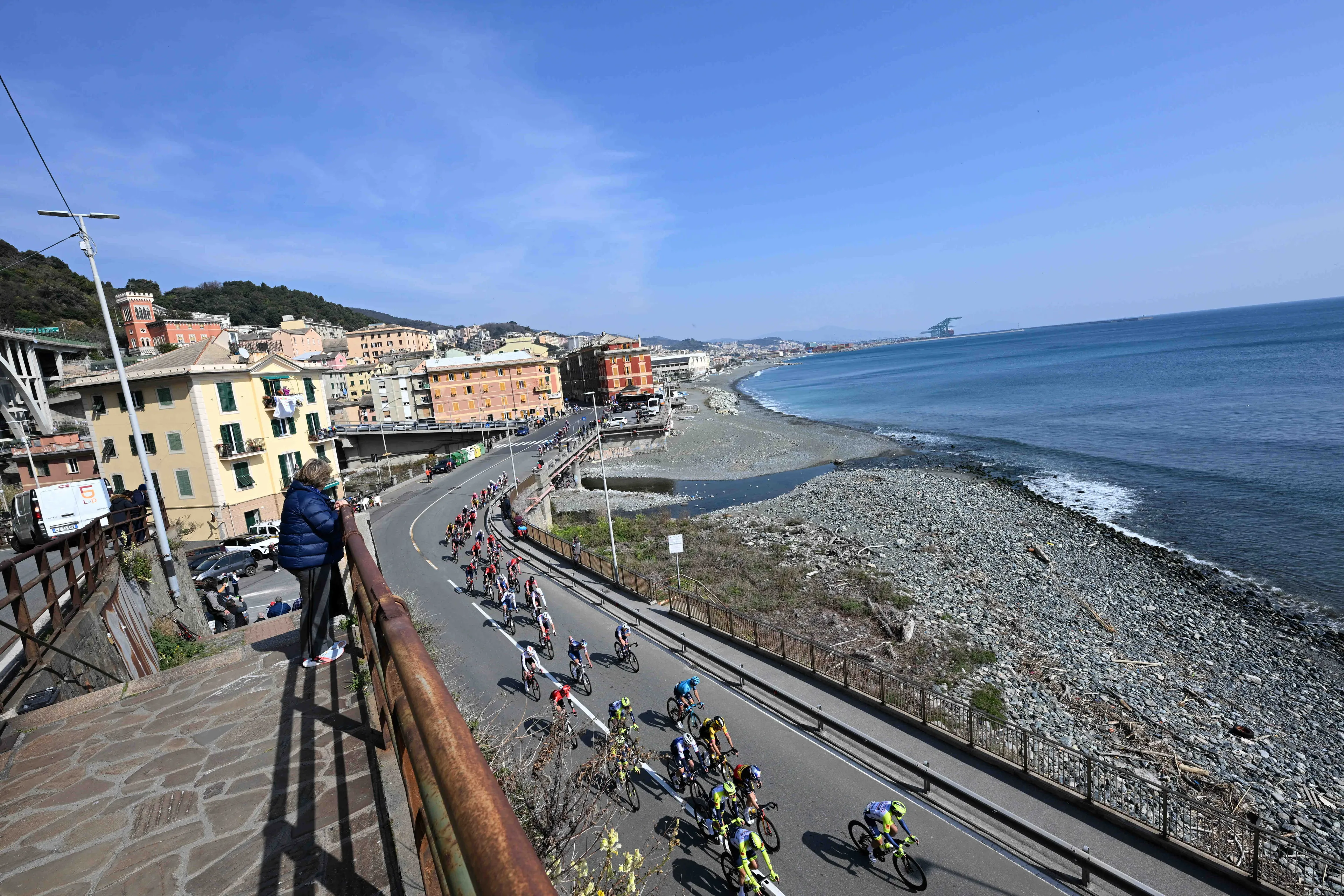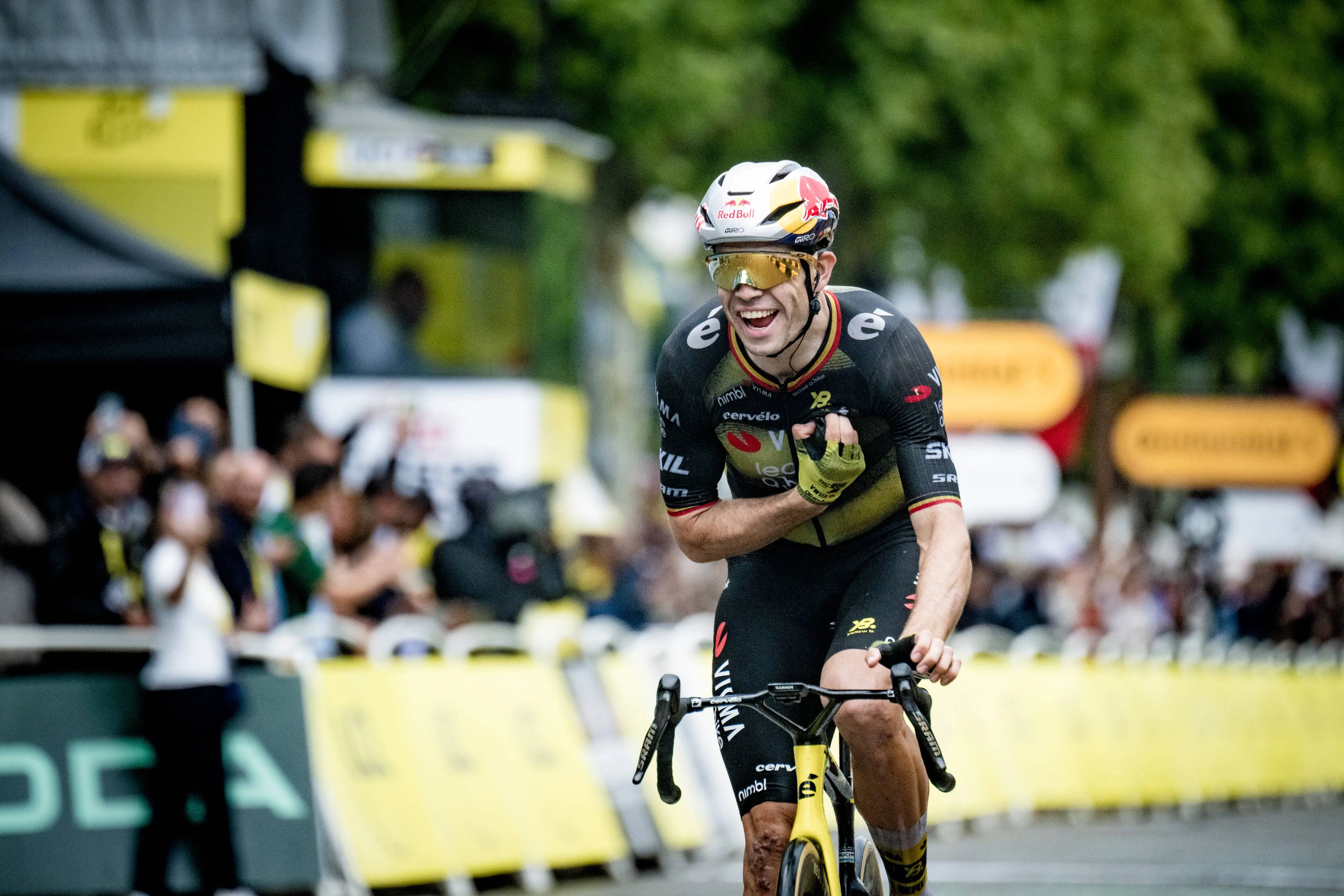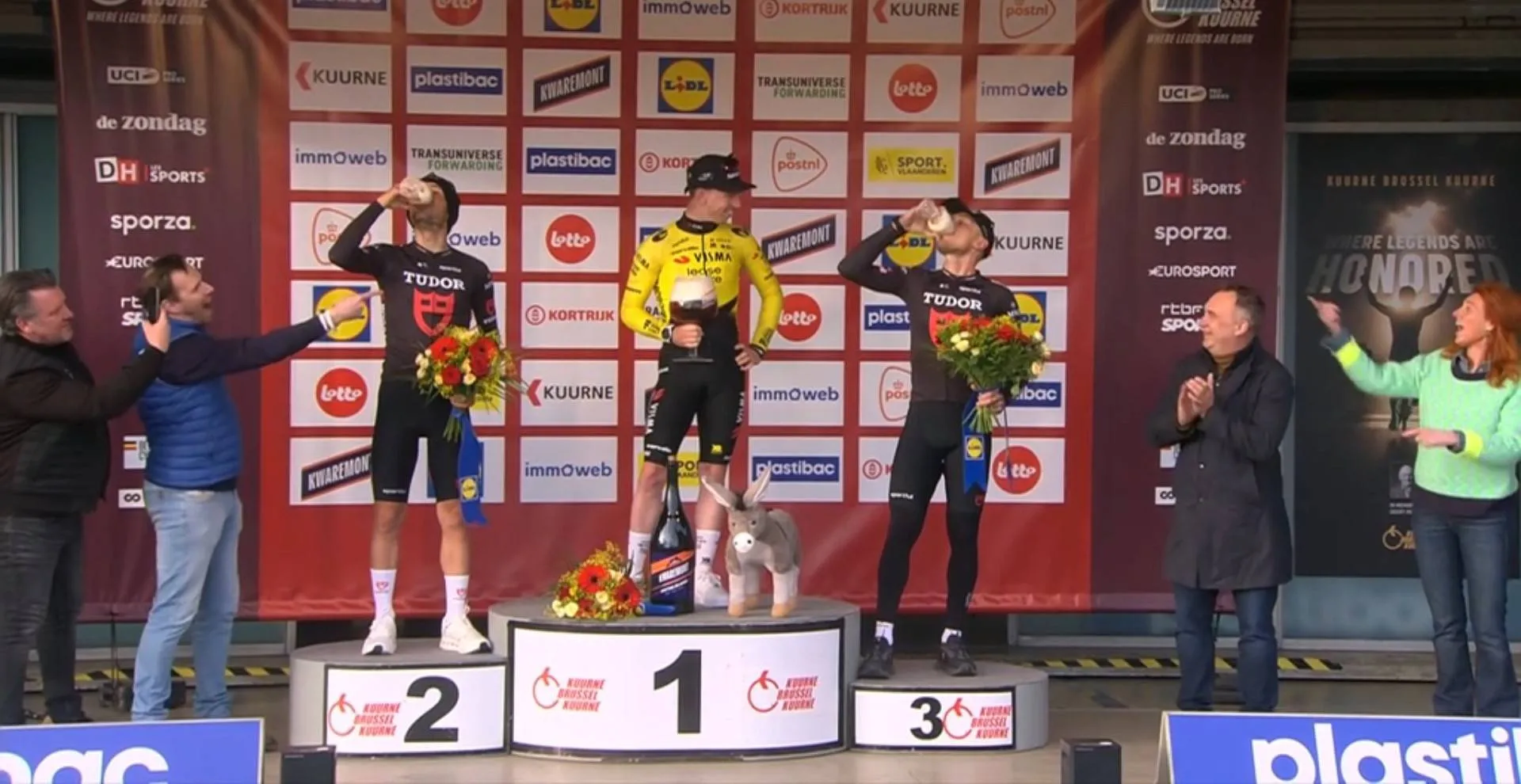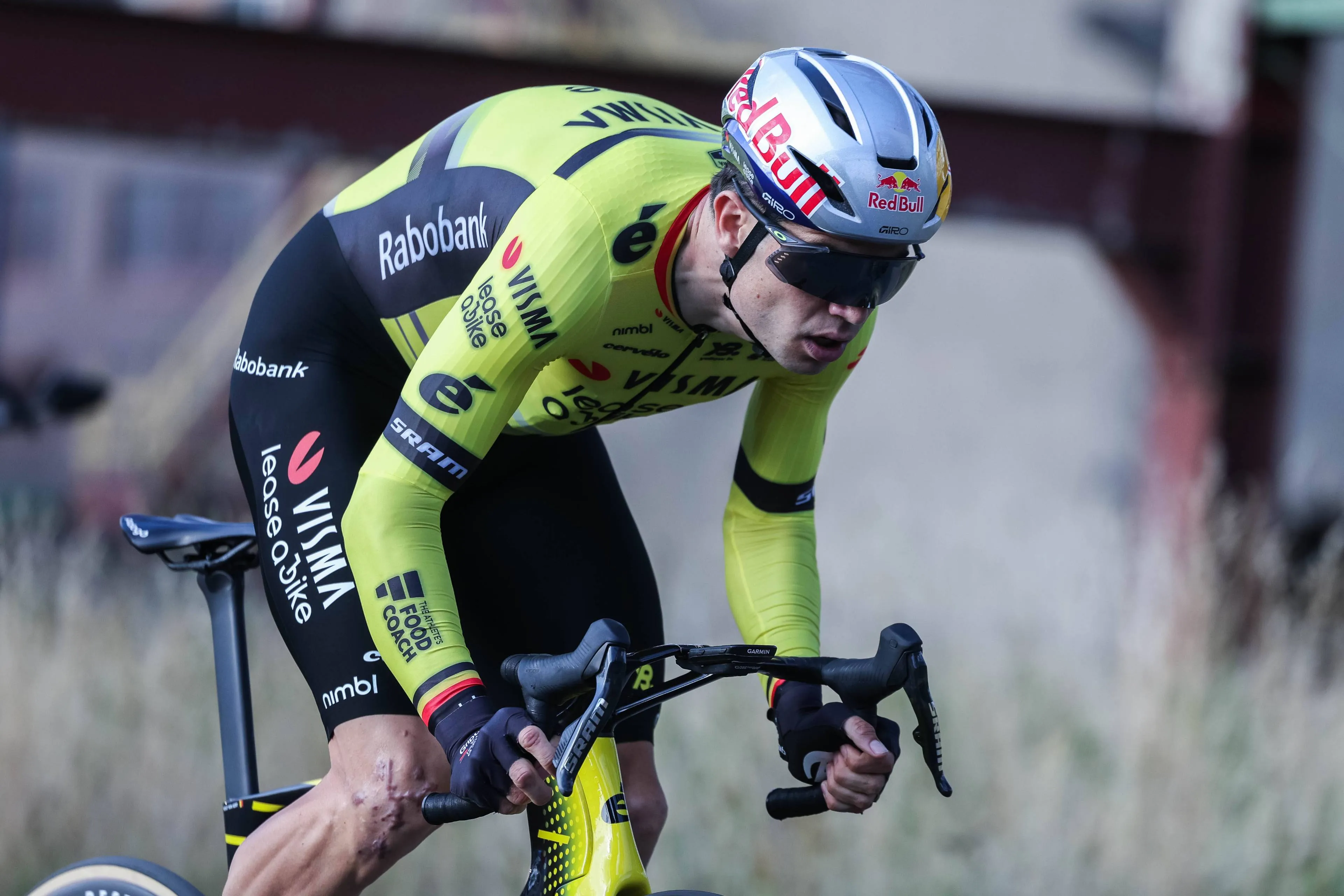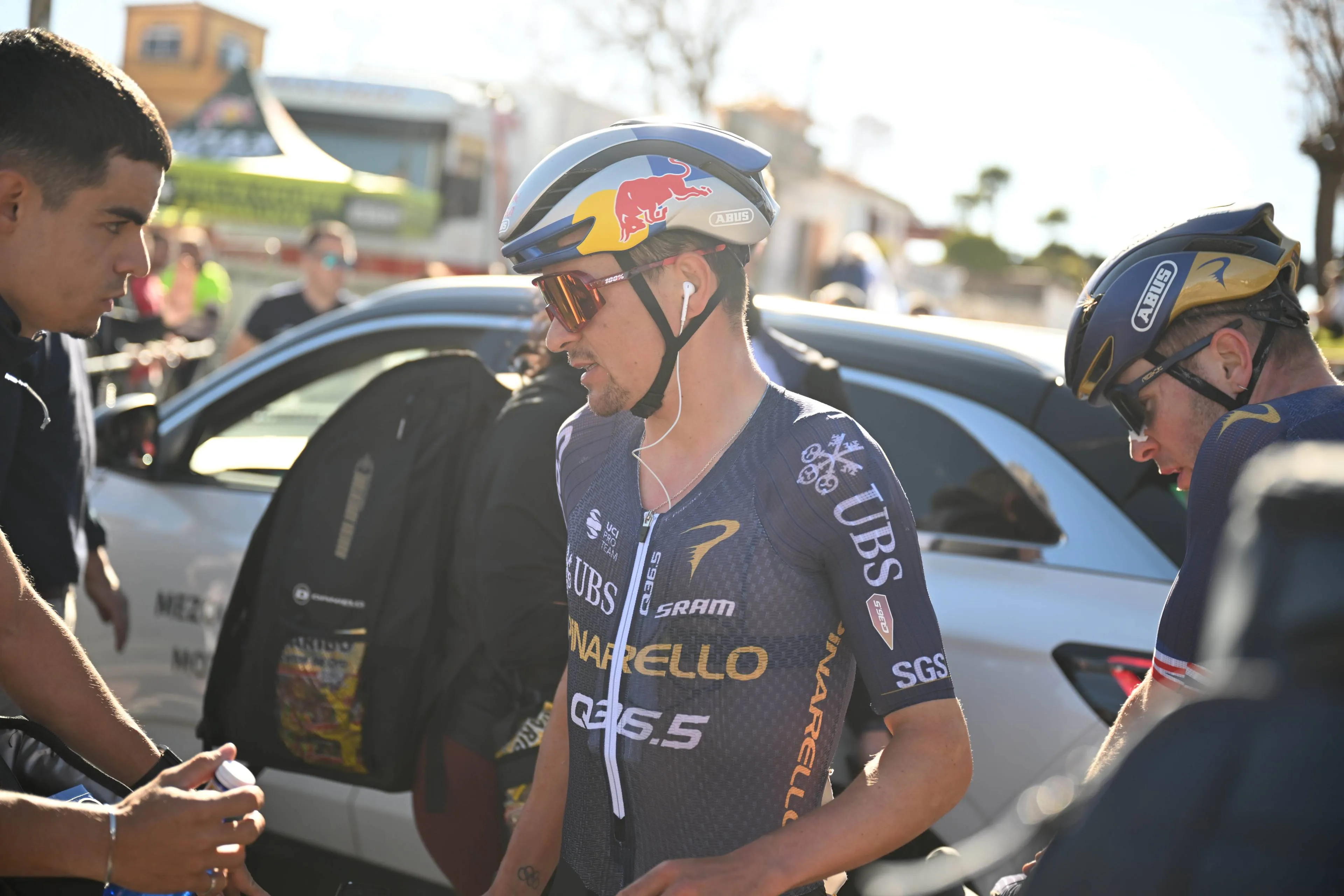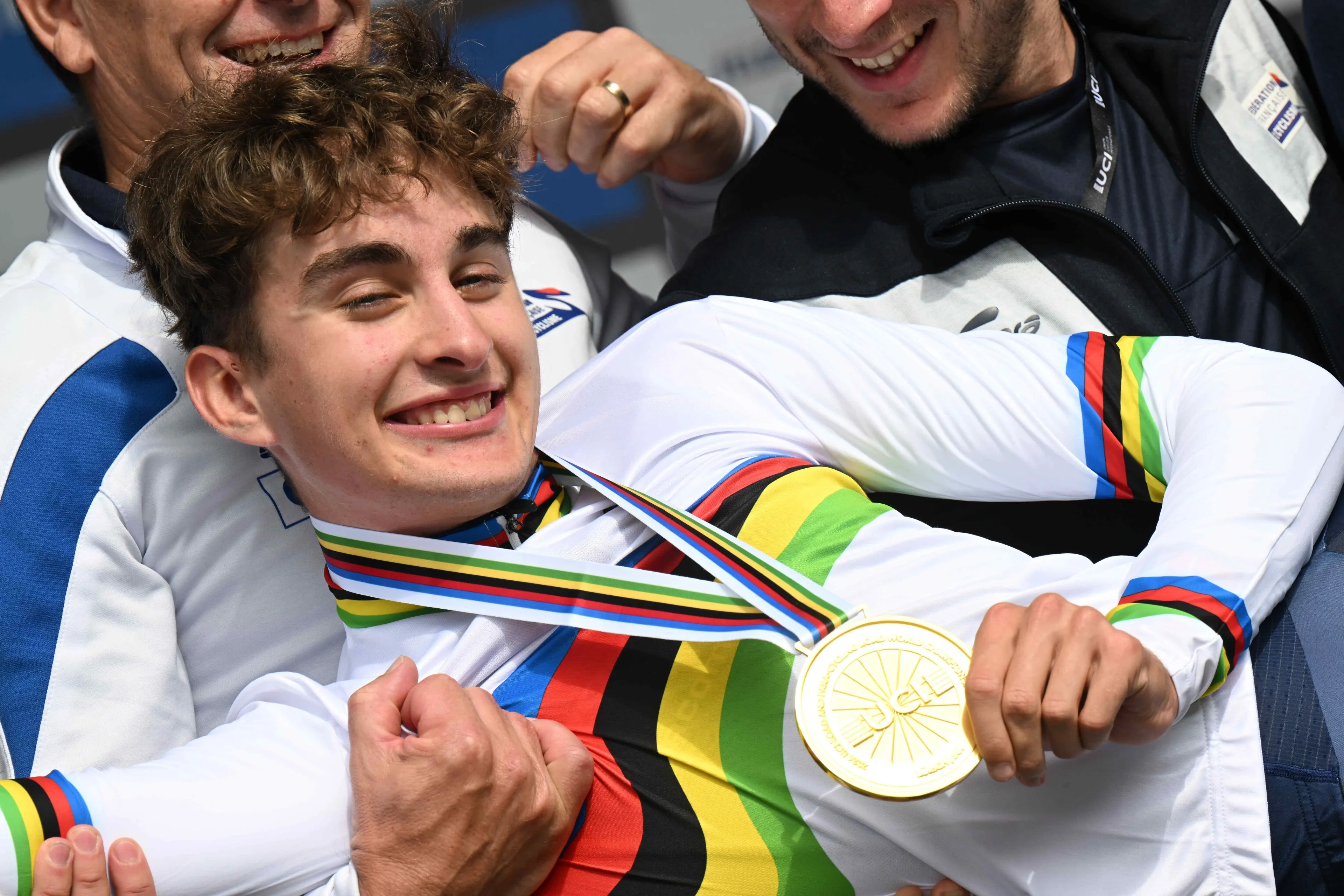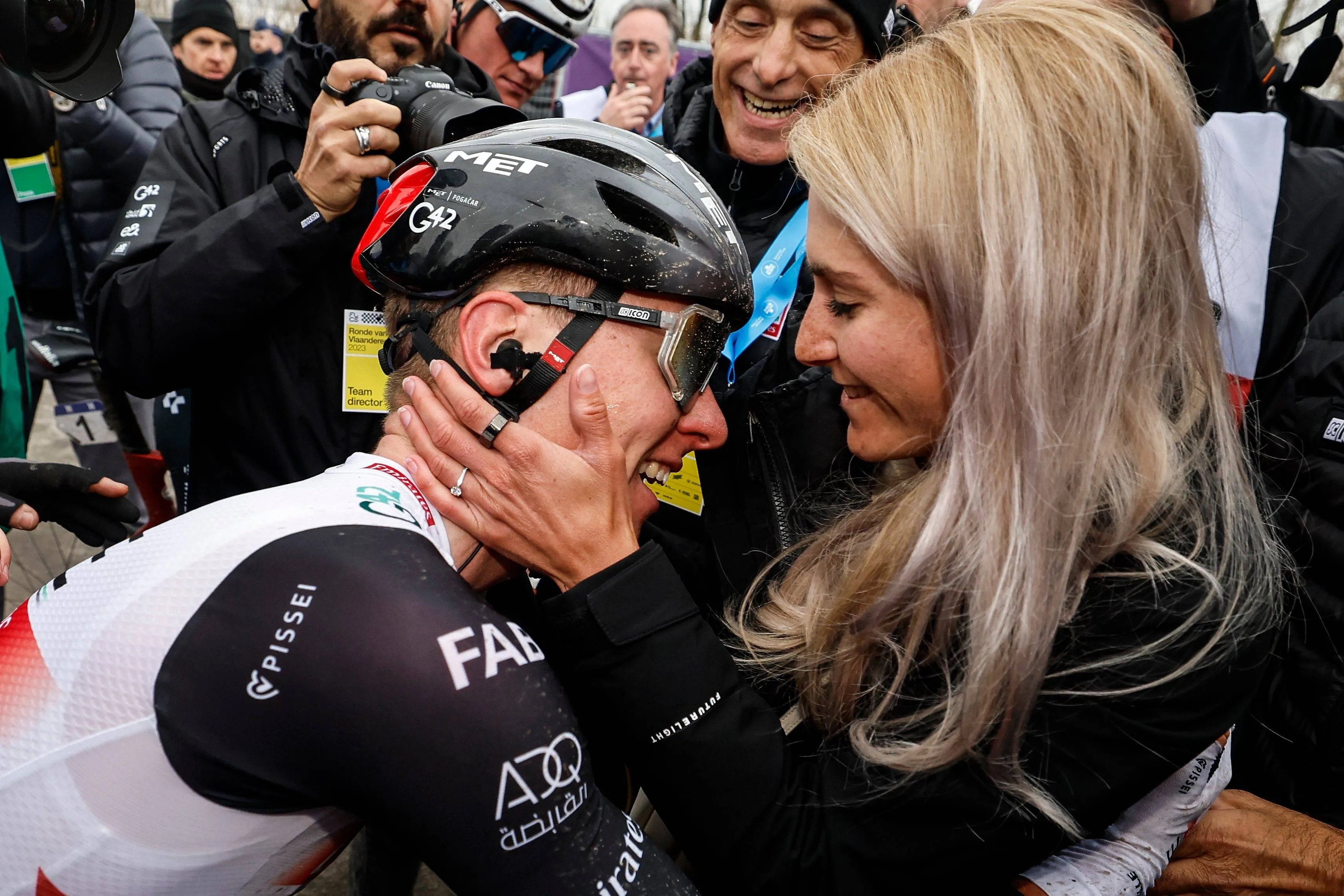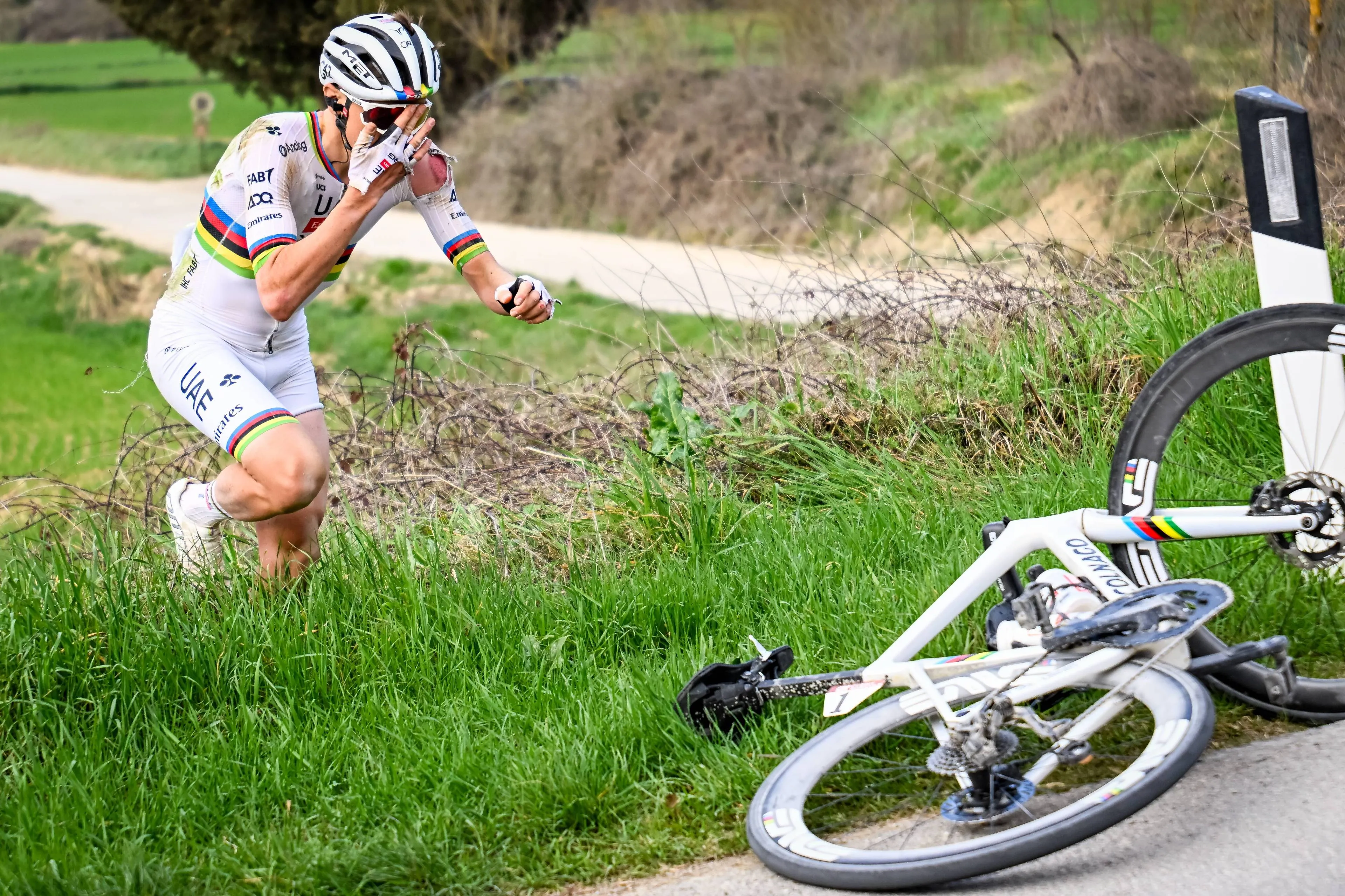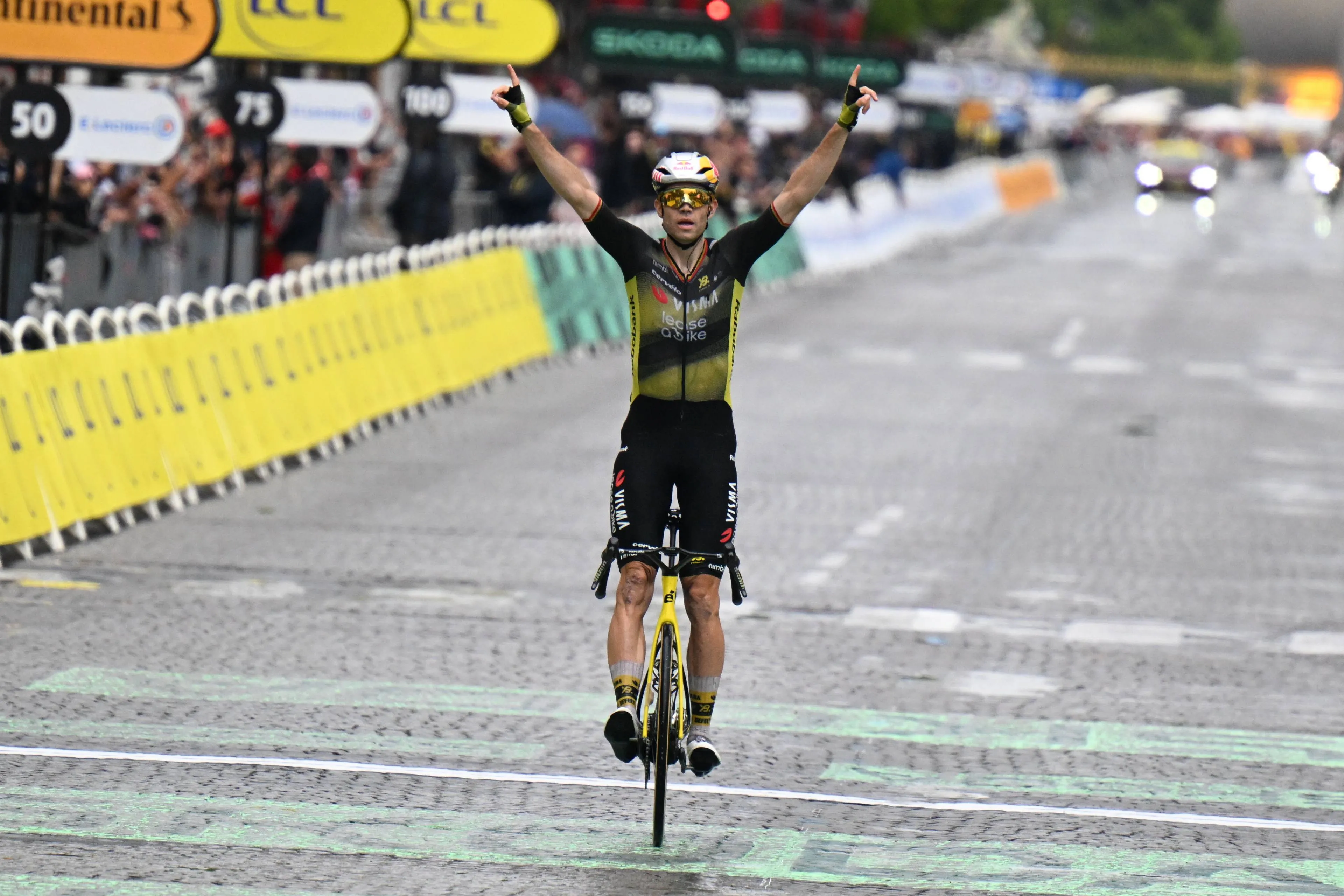Patrick Lefevere: "No one would have thought that the virus would have such an impact on our organism"
CyclingWednesday, 23 March 2022 at 19:00
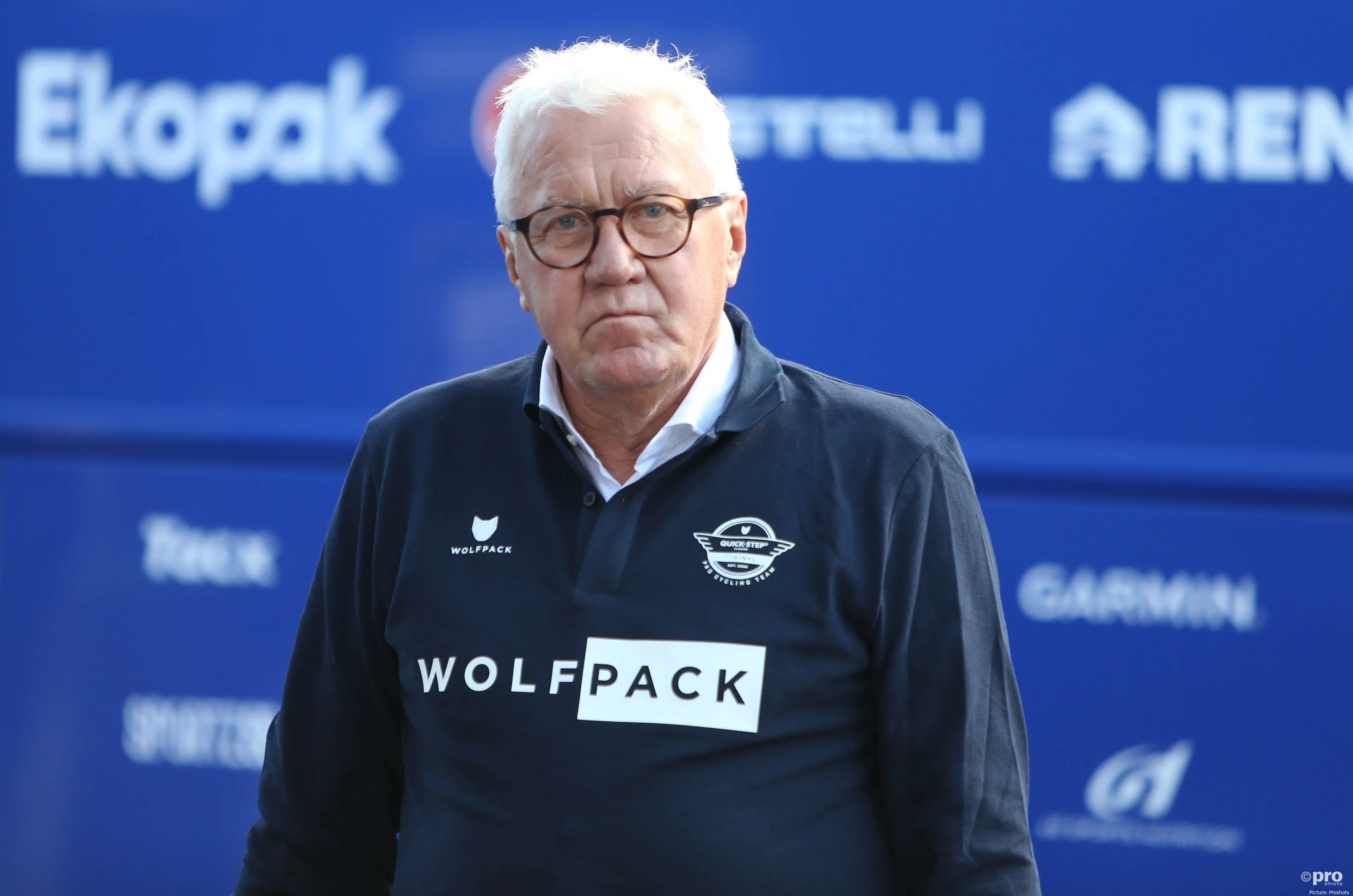
The general manager of Quick-Step Alpha Vinyl Team Patrick Lefevere has spoken out about the risks and procedures within the team regarding possible after-effects of Covid-19 infections in the peloton in light of Sonny Colbrelli's recent cardiac arrest; related with a recent bronchitis.
“I don't have much contact with the rest of the peloton, but I'm afraid for my team and my riders. Because I know what the consequences of covid can be, Lefevere said in an interview with Wielerflits.
Read also
“In my day, if you had a fever or the flu, you took a few aspirins and just rode on. That's how it went. But over the years I learned in Italy, first at GB-MG, later at Mapei, not to let sick riders race. They didn't want that there, especially not with a fever," he added.
"But with covid we are now going one step further. No one would have thought that the virus would have such an impact on our organism," Lefevere points out. Several riders in the last couple of years have reported consequences post-Covid.
Read also
“For some it is on the lungs, for others on the heart, like with Tim Declercq. Some, such as Yves Lampaert, Julian Alaphilippe and Mattia Cattaneo, you notice that they have to take much longer than usual. Others don't feel it at all. For others it comes in waves. One day they are better, the next they are back in bed," he adds.
Within Quick-Step, there is a clear routine for riders to follow after they have been infected with Covid-19, as Lefevere explains: “That's why we work differently now than before. After getting sick, our riders have to go to the cardiologist for the necessary tests. The situation calls for extreme caution. Look at society. Why should it be any different in sports? There are young riders who die in their sleep, footballer collapse on the field. There is also no age. That is why I advocate even more heart screening for young riders.”
Read also
“We were indeed one of the first to take Brugada with the team three days a year to detect cardiac arrhythmias. That costs me a few cents, but no human life is worth not investing in. In the meantime we have also discovered a few, such as Gianni Meersman at the time and Zdeněk Štybar. Brugada is also arguing for even more screenings among young athletes and I fully support him in this," he concluded.
Within the team, Tim Declercq has been forced to miss the classics season - or most of it at minimum - due to long-term consequences of a Covid-19 infection. Later this year, Kasper Asgreen and Davide Ballerini also saw their preparations for the classics affected by it.
claps 0visitors 0
Just in
Popular news
Latest comments
- Amen!!!
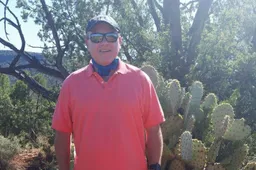 QPSQUANTUM03-03-2026
QPSQUANTUM03-03-2026 - What about Paulo Seixas?
 Rafionain-Glas03-03-2026
Rafionain-Glas03-03-2026 - How did the man miraculously recover from his illness? Or is it just that there is no MVDP on the start list? :)MajorPayne03-03-2026
- yes, but he is NOT a gravel specialist. He refuses to even ride Roubaix. I don’t know where they get this info.mij03-03-2026
- Aw guys, you’re spoiling my fun watching someone get uptight and rude over something totally insignificant. But thanks for confirming my research wasn’t flawed :-)Mistermaumau03-03-2026
- Yes, for some people, life is mess, but most people are not some people. That person lived 'a life of endurance' and he even endured David Walsh, didn't he?
 Rafionain-Glas03-03-2026
Rafionain-Glas03-03-2026 - At what point did he "call out" Mathieu van der Poel, Wout van Aert, Vini, Ayuso and Remco. Leave your man love at the door gump.whit2pet03-03-2026
- 2025 Strade Bianche: 98 finishers out of 175 starters (21 out of 180?). Number of riders OTL: 0. Finish rate: 56%. 2025 Paris-Roubaix: 117 finishers out of 175 starters (102 out of 180?). Number of riders OTL: 5. Finish rate: 67%. I recommend you use PCS (ProCyclingStats) if you have heard of it.
 Rafionain-Glas03-03-2026
Rafionain-Glas03-03-2026 - Some of you say that Strade Bianche has become a climbers race, so where are all those legendary climbers: the rat Ayuso, Remco Mustafa, Vinni the Fish? Why don't I see them in the top 10? Mistermaumau would say: "Nobody even knows if the Messiah (will) exist(s). It can’t be an objective debate. It's very different whether you grow up in France/Norway/Argentina/Spain/China/Iran/USA/Israel/Palestine/Lebanon or the beautiful small country of Slovenia...bla bla bla..."Mou-Cro-HR03-03-2026
- France has Seixas, Belgium has Remco Mustafa, Spain has the rat Ayuso, Denmark has Vinni the Fish... all that's left is for Italy to get its cycling star. Then all of the legendary cycling countries will follow every race with impatience, annoyance, frustration... following Pogi The Goat from a tiny but beautiful country called Slovenia. Long live cycling !!!Mou-Cro-HR03-03-2026
Loading
🏥 MEDICAL UPDATE Following the end of Stage 1 of @VoltaCatalunya, our medical team can confirm that @sonnycolbrelli suffered from an unstable cardiac arrhythmia that required defibrillation. 🔗 bit.ly/3isBgz9
Write a comment
